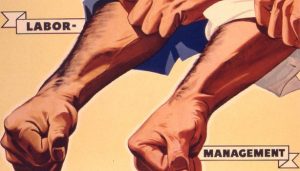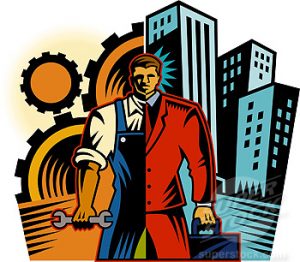Anima Anowar
Dr. Carrie Hall
English 1101
11/18/18
In the New York Times under society debate sections, one of the debates were on “Blue collar or White Jobs? What’s the way to go.” One of the replies were from someone named Lillian Nakayima. She had a very dishonoring view on blue collar jobs. You start by saying “Ever imagined why people toil hard to go to school?….Definitely it’s because you want to get that “white collar job.” Yes, a job that will earn you all the public respect and fascinate everyone on hearing what you do.” I highly disagree not everyone goes to school thinking they “want to get that white collar job.” Not everyone’s mindset is like that, school is not for everyone. People do not look at education the same, we have different views and we all process things differently. You go on by saying “blue collar jobs will always be a secondary option; I should not be misunderstood if I term them jobs for failures.” Blue collar jobs are not a secondary option, they’re there for a reason. That comfortable chair you’re sitting in right now, while doing your office work was probably handcrafted by one of them. Blue collar jobs are most definitely not for failures, just like you’re good at your job, they’re great at theirs. The same amount of effort and hard work is put into both jobs. My community thinks more highly of white collar than blue collar jobs. My community involves immigrants from all over the world, this includes; (South) Asia, The Middle East, Africa, and Latin America. But I think biases towards blue collar work came from, where one originated from and from their environment.
My parents came from Bangladesh to give me and my siblings a better life and education in America. My father’s home country Bangladesh, there was a OP-1 Visa Program where you got to get your visas by lottery. Luckily in 1991, my father got chosen from the lottery and got to fly out to America. Later my father found a job in New York, he dealt with ice cream machines at Tasti D-Lite. I spoke to my father, and he enjoyed his job very much. The smile it brought face when having ice cream, made him happy. But along with this job, he had to come in early to make sure the ice cream machines were up and running, also that he had enough stock of certain ingredients, make sure things that needed to be replaced were replaced. He showed people ice-cream is the best way to celebrate or commiserate. You also mention “And why should one even opt for a job that is not guaranteed? While a white collar job comes with a contract, a designed salary and allowances, blue collar workers work for a daily meal. Their earning depends on seasons since they earn daily.” You want to bring up guarantee right? My father has been working there since 1997, it’s 2018 and he’s still working there. He has all the guarantee he needs in this world. Don’t we all work for a daily meal?
My father left Bangladesh because he lived a very hard life there. Most of the jobs consisted of blue collared jobs, and it wasn’t enough to feed his family. My parents only got to finish their education up to high school. And the education system in Bangladesh wasn’t worth it at that time. The main reason my parents came to America was to get more opportunities and to pursue the American Dream. The American Dream is achieved through sacrifice, risk-taking and hard work, not by chance. After eventually having me and my siblings their hopes and dream still till this day is that we become successful people, and that we don’t have to work as hard as them. And go through the struggles they went through. My community knows the struggle of leaving their home country to try and provide for their family. My parents did not come all the way to America so that their kids can work in the blue collar field and struggle the same way they did.
I think that the biases towards blue collar work came from our country and the community my parents or where they lived in. The blood, sweat, and tears put into blue collared jobs in my country was horrible. And some even resulted in deaths. My parents raised us so that way we learned from their struggles, and that blue collar work isn’t the way to go. If you become something in the white collar field, you’ll be living peacefully and won’t have so much to stress growing up. You’ll be making better money, and being able to do something that you want to do.
As times changed, people from my community were soon working in banks, and hospitals and etc. This set a example for others and showed that with a good education in America you can do anything, and that is why people from our community value white collar jobs so much. In my community, we value both but lead towards white collar because, blue collar reminds us where we came from but white collar shows us our future. Not everyone has the ability to recognize themselves unless they are given the opportunity. My father came here, and works hard every day, but still manages to stress himself out. Sometimes, it’s just not enough. Blue collar work didn’t allow you to move forward, it didn’t spark any type of hope that things will get better. To the people of our community it was more like, “I’m doing this job to provide for my family, and this way my kids will grow up to know how hard we worked and not have to do what we’re doing so they can live a better future.” To our community blue collar work felt like a liability they had to maintain.
College is not just a ticket to a “open” future, it’s a educational institution that targets and prepares you for the real world. Yes indeed, we do learn about a particular application but only towards the field we want to work in. Manual trades aren’t given little honor, or little value. To us blue collar jobs reminds us where we came from and pushes us to go beyond our capabilities. We don’t neglect it or bring people’s spirit down saying it’s “temporary.”
My community stresses working hard so much because of the environment they grew up in. Their opportunities were very limited, and had no choice but work hard where they came from and in the United States as well. To them blue collar work has always been the only choice. My community has definitely seen the different privileges between blue and white collar work. And this is why we lean towards white collared jobs. Next time don’t drag down a certain type of work, because of what you think. Everyone’s situation, capabilities, and opportunities are different.
Tumwebaze, Peterson. “Society Debate; Blue Collar or White Collar Jobs? What’s the Way to Go.” The New Times | Rwanda, 14 Jan. 2010, www.newtimes.co.rw/section/read/93579.




